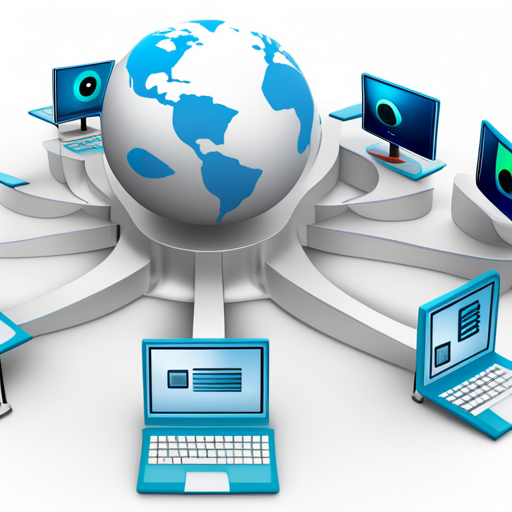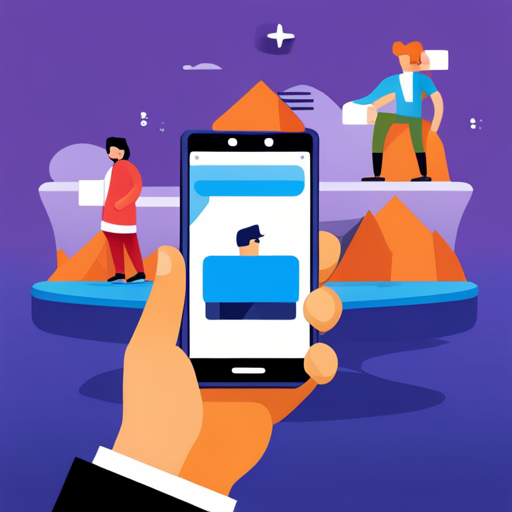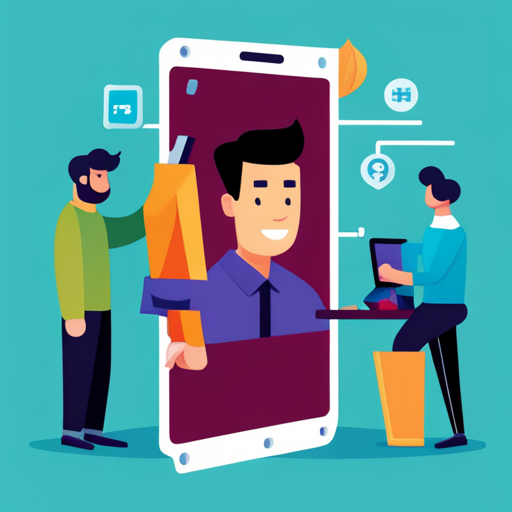How Artificial Intelligence is Revolutionizing Digital Marketing
Artificial Intelligence (AI) has become a game-changer in the digital marketing landscape, transforming how businesses engage with their customers, optimize campaigns, and improve their overall marketing strategies. From personalized customer experiences to advanced data analytics, AI is revolutionizing the way marketers approach their work, enabling them to make smarter, faster, and more efficient decisions.
In this article, we’ll explore how AI is revolutionizing digital marketing and the key AI-driven technologies that are shaping the future of the industry.
The Role of AI in Digital Marketing
1. Personalization at Scale
One of the most significant ways AI is revolutionizing digital marketing is through personalization at scale. Consumers today expect personalized experiences that cater to their specific needs and preferences. AI enables marketers to deliver these tailored experiences by analyzing vast amounts of data and predicting user behavior in real-time.
AI-powered tools can segment audiences, track user behavior, and deliver personalized content, product recommendations, and targeted ads. This level of personalization leads to higher engagement, increased customer satisfaction, and ultimately, improved conversion rates.
Examples of AI-Powered Personalization:
- Product recommendations: AI algorithms analyze past purchases, browsing history, and preferences to suggest products that are most likely to appeal to individual customers (e.g., Amazon’s recommendation engine).
- Dynamic email content: AI customizes email content based on user behavior, such as location, purchase history, or recent interactions, to increase relevance and engagement.
- Personalized website experiences: AI-driven tools can adjust website content in real-time to reflect each visitor’s preferences and behavior.
2. Improved Customer Insights and Predictive Analytics
AI is transforming how businesses gather and analyze data, enabling them to gain deeper insights into customer behavior and preferences. Through predictive analytics, AI can forecast future trends, customer actions, and market changes based on historical data, helping marketers make more informed decisions.
AI-powered tools can analyze data sets from multiple sources—such as social media, website interactions, and customer reviews—to identify patterns and predict outcomes. This allows marketers to optimize their strategies and better target customers based on their predicted behavior, leading to improved ROI.
How AI is Enhancing Customer Insights:
- Predictive lead scoring: AI can analyze historical data to predict which leads are most likely to convert, helping sales and marketing teams focus their efforts on high-potential prospects.
- Churn prediction: AI algorithms can predict which customers are at risk of churning, enabling businesses to take proactive steps to retain them through personalized offers or improved customer service.
- Sentiment analysis: AI tools can analyze customer feedback on social media or reviews to determine overall sentiment toward a brand or product, helping businesses improve their offerings.
3. AI-Powered Chatbots and Virtual Assistants
AI-powered chatbots and virtual assistants are revolutionizing customer service and engagement by providing real-time support and answering customer queries 24/7. These tools use natural language processing (NLP) to understand and respond to customer inquiries, providing personalized, relevant information quickly and efficiently.
AI chatbots are not only enhancing the customer experience but also reducing operational costs by handling routine tasks such as answering frequently asked questions, providing product information, and managing bookings or appointments.
Benefits of AI Chatbots in Digital Marketing:
- Improved customer support: Chatbots can handle multiple customer queries simultaneously, providing fast and accurate responses without the need for human intervention.
- Lead generation and qualification: AI chatbots can engage visitors on a website, ask qualifying questions, and guide them through the sales funnel, identifying high-quality leads for further follow-up.
- 24/7 availability: Unlike human agents, AI chatbots are available around the clock, ensuring that customers always have access to support when they need it.
By integrating AI-powered chatbots into their marketing strategies, businesses can improve customer satisfaction, streamline processes, and boost conversions.
4. Content Creation and Optimization
AI is making waves in content marketing by automating content creation and optimization processes. While AI-generated content cannot yet replace human creativity, it can assist in generating certain types of content quickly and efficiently, such as news updates, product descriptions, or social media posts.
In addition to content creation, AI is also helping marketers optimize their content for better performance. AI tools can analyze the effectiveness of different types of content, recommend keywords for SEO, and suggest improvements to enhance engagement and readability.
How AI Enhances Content Marketing:
- Automated content generation: AI-powered tools like GPT-based models can generate content for blogs, product descriptions, and social media posts, saving time for marketers.
- SEO optimization: AI tools can recommend keywords, meta tags, and headline structures that will help improve a page’s search engine ranking.
- Content performance analysis: AI can analyze how different pieces of content are performing and provide insights on how to improve future content to maximize engagement.
AI’s ability to streamline content creation and optimization allows marketers to focus on higher-level strategy while ensuring their content reaches the right audience.
5. AI-Driven Advertising and Programmatic Buying
AI is also transforming digital advertising by enabling programmatic ad buying, which uses machine learning algorithms to automate the process of purchasing ads. AI can analyze user data, determine the most relevant audiences for a particular ad, and optimize ad placement in real-time to ensure maximum effectiveness.
Programmatic advertising allows businesses to target their ads with precision, reducing wasteful spending and increasing ROI. AI also helps optimize ad creative by testing different variations and identifying the best-performing ones.
Advantages of AI in Advertising:
- Real-time ad optimization: AI-powered tools can adjust bids, targeting, and creative elements in real-time to improve ad performance.
- Audience targeting: AI can analyze vast amounts of data to identify and target the most relevant audiences based on demographics, behavior, and interests.
- Ad fraud detection: AI algorithms can detect fraudulent clicks and impressions, ensuring that businesses only pay for legitimate ad interactions.
By leveraging AI in digital advertising, businesses can optimize their ad spend and deliver more relevant, effective ads to their target audience.
6. Voice Search and AI Assistants
With the rise of voice-enabled devices like Amazon Alexa, Google Assistant, and Apple’s Siri, voice search is becoming an increasingly important aspect of digital marketing. AI plays a critical role in understanding voice commands and delivering relevant search results, making voice search optimization essential for businesses looking to stay competitive.
To capitalize on the growing popularity of voice search, businesses must optimize their content for conversational queries and ensure that their websites are voice-search friendly.
How AI is Shaping Voice Search:
- Natural language processing (NLP): AI-powered NLP allows devices to understand and process spoken language, making voice search more intuitive for users.
- Featured snippets: AI helps identify content that best answers voice queries, often selecting featured snippets or “position zero” results in search engines.
- Local SEO optimization: Voice search is often used for local queries (e.g., “restaurants near me”), so businesses need to optimize their content for local SEO to appear in voice search results.
As voice search continues to grow in popularity, businesses that embrace AI-driven voice search optimization will have a competitive edge.
FAQs About AI in Digital Marketing
1. How is AI used in digital marketing?
AI is used in digital marketing for personalization, predictive analytics, chatbots, content creation, programmatic advertising, and voice search optimization, helping businesses deliver better experiences and improve ROI.
2. Can AI replace human marketers?
While AI can automate and optimize many marketing tasks, human creativity, strategy, and emotional intelligence remain essential for developing successful marketing campaigns.
3. How does AI improve customer insights?
AI analyzes vast amounts of data to identify patterns and predict customer behavior, enabling businesses to make data-driven decisions and improve targeting.
4. What is programmatic ad buying, and how does AI power it?
Programmatic ad buying is the automated purchasing of ads using AI algorithms to optimize targeting, placement, and bidding in real-time for maximum effectiveness.
5. How can AI improve content marketing?
AI enhances content marketing by automating content creation, optimizing content for SEO, and analyzing performance to provide recommendations for improvement.
6. What role does AI play in voice search?
AI powers voice search by using natural language processing to understand and process spoken queries, enabling businesses to optimize their content for conversational search.
7. How do AI chatbots improve customer service?
AI chatbots provide real-time, 24/7 customer support, handling routine queries, guiding users through the sales funnel, and offering personalized recommendations.
8. How does AI enhance personalization in marketing?
AI enables marketers to analyze user data in real-time, delivering personalized content, product recommendations, and targeted ads that cater to individual preferences.
9. What are predictive analytics in AI marketing?
Predictive analytics use AI to analyze historical data and forecast future customer behavior, enabling businesses to anticipate trends, optimize campaigns, and improve decision-making.
10. How can businesses start using AI in digital marketing?
Businesses can start using AI in digital marketing by adopting AI-powered tools for content creation, customer insights, chatbots, programmatic advertising, and personalization.
Conclusion
Artificial intelligence is revolutionizing digital marketing by providing businesses with powerful tools to personalize experiences, predict customer behavior, optimize ad campaigns, and improve overall marketing performance. As AI continues to evolve, it will become even more integrated into the digital marketing landscape, helping businesses create more efficient, data-driven strategies. By embracing AI-driven technologies, marketers can stay ahead of the competition, deliver better customer experiences, and achieve greater success in their campaigns.












